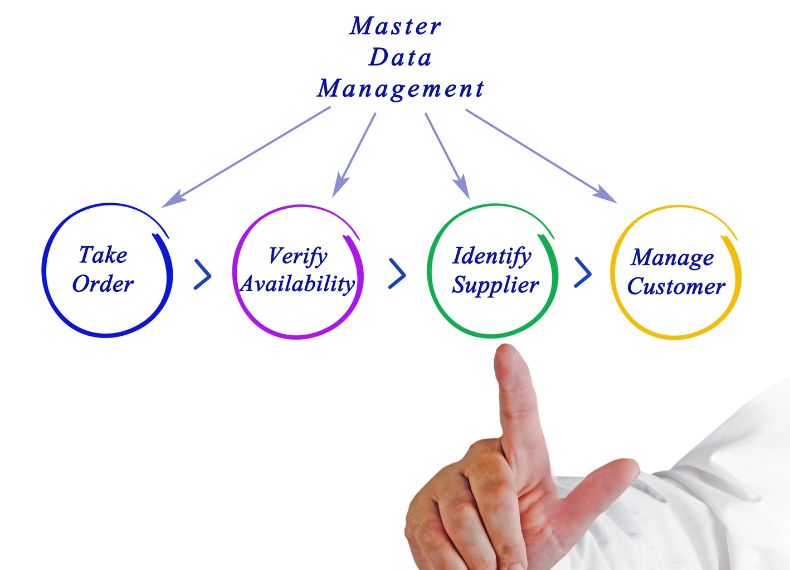In the world of big data, it’s becoming increasingly difficult for businesses to keep track of all their data. This is where master data management (MDM) systems come in. MDM systems provide a centralized repository for all your business’s data, making it easier to track and manage. Let’s examine why all companies need master data management systems.

What is Master Data Management?
Master data management is the process of collecting, consolidating, and maintaining a single, accurate, and up-to-date view of your business’s critical data. Critical data includes things like customer information, product information, supplier information, etc. A centralized system for managing this vital data makes it easier to track and maintain.
What Does MDM Do?
An MDM system consolidates your business’s critical data into a single repository. This repository makes it easier to track and manage your data and keep it up-to-date. MDM systems also provide tools for cleansing and enriching your data, making it more accurate and valuable.
For instance, a catering company might use an MDM system to track customer data, including contact information, dietary restrictions, and past orders. This data is then used to create a single view of the customer, which the company can use to understand their needs better and provide better service.
An MDM system can also help you keep your data organized and consistent across different departments and systems. For example, if you have a customer database and a separate inventory system, you can use MDM to ensure that the data in both systems is accurate and up-to-date.
Why Do Businesses Need MDM Systems?
There are many benefits to having an MDM system in place. First and foremost, it helps businesses keep track of their data. With so much data being generated daily, it can be challenging to keep track of it all without a central system in place. MDM systems help businesses organize their data so that it’s easy to find and use when needed.
Another benefit of MDM systems is that they help improve decision-making by providing accurate and up-to-date data. With an MDM system, businesses can be confident that their data to make decisions is accurate and up-to-date. This is essential for making sound business decisions that can help improve the bottom line.
Finally, MDM systems can help improve customer service by providing accurate and up-to-date customer information. With an MDM system in place, businesses can be sure that they have the most current information on their customers, which can help them provide better customer service.
Tips For Adding MDM To Your Business
If you’re considering adding MDM to your business, you should keep a few things in mind. First, it’s essential to understand your business’s needs clearly. What data do you need to track? How will you use this data? What are your goals for adding master data management systems to your business? Once you clearly understand these things, you’ll be in a better position to select the right MDM system for your business.
Second, involving all stakeholders in the project from the beginning is crucial. This includes executive sponsors, IT staff, data owners, and end users. Getting everyone on board early will help ensure that the project is successful.
Finally, it’s important to choose an MDM system that is flexible and scalable. As your business grows, you’ll need a system that can grow with you. Choose an MDM system that can be easily customized and expanded to meet your changing needs.
Final Thoughts
Overall, there are many benefits to having an MDM system in place. All businesses, regardless of size, can benefit from having a central system for managing their data. If you’re not already using an MDM system, now is the time to consider implementing one. It can help you keep track of your data, improve decision-making, and provide better customer service.